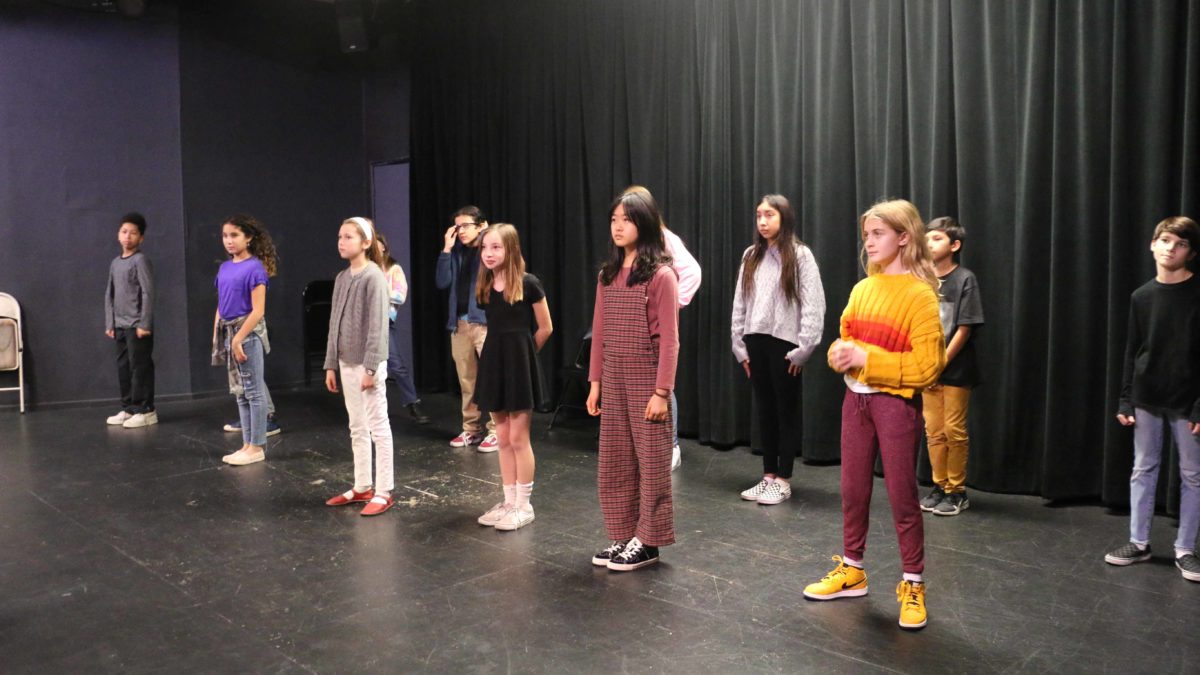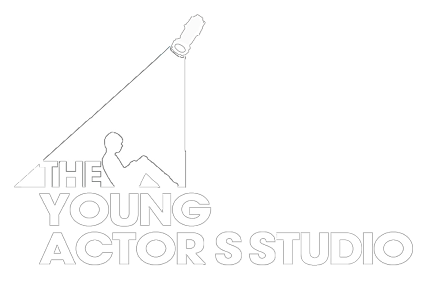- Feel free to contact us with any questions!
- 818-210-3821
- office@youngactorsstudio.com

Having taught acting school Los Angeles young people for over twenty years now, it has been one of my main aims to prevent them from following the same path that I did as a young actor. On the face of it, this may sound a little odd coming from someone who had his own series on TV at the age of 9 and spent a hugely successful period of life from the ages of 9 through to 16 booking commercials, performing radio voice-overs and advertisements, and generally acting with a degree of success designed to make any parents (including my own) very proud. My main problem would not become obvious to me until it was slightly too late to sustain the earlier success. The problem is that being cute and photogenic will only take you to a certain point and more specifically a certain age. Beyond that, no career can expect any sustained success without a solid foundation of acting skill behind it.
In fairness to the parents, mentors and guardians of young would-be actors who have attended acting schools, all of this can come on very fast and very early in contrast to other potential careers. Parent of kids who decide to become lawyers, doctors or accountants need to start taking good decisions about those careers as high school draws to a close. In the case of young actors, a great deal of damage can be done well before then unless good decisions are taken early on.
I suppose that I was about eight when I decided that I wanted to act and I told my parents as much. Needless to say, they had no idea that I was making a statement about what I was going to spend the rest of my life doing, any more than I suppose I did. However, when the first thing that happened to me was an open-call audition resulting in me becoming the lead in my own TV show, it seemed that we were on the right track. None of this had come about through acting classes– I simply had the same ability that countless kids had and have at that age – the ability to look cute, do what the director wanted and make the imagined real.
In fact, the success continued almost unabated until I was about 15. By this time, my family and I were commuting back and forth from New York City for auditions with some regularity. It wasn’t until after a short stint on a series that I was forced into the awful realization that I was no longer being hired despite the fact that I still desperately wanted it. Most people aren’t forced into the horrors of this sort of realization at such a young age, but in the world of childhood actors it is quite common.
It wasn’t until years later that I was able to properly analyze where it had begun to go wrong. As it happened, I did not join the long list of child actors who simply stop acting and move on, and four years at NYU resulting in a BFA degree in acting made the problem clear to me. I had simply become mechanical or robotic. I was able to stand on the mark for hours on end, follow the director’s lead, jump through the hoops, say this and move here – but in the end I found that I knew nothing about acting. Much more frustratingly, my time at NYU made it clear to me that there was nothing in what I had learnt between the ages of 18 and 22 that I could not have been introduced to at the age of 8. Certainly I had undergone various bits of ‘coaching’ designed to make me marketable, but actual acting technique had been the missing piece of the puzzle.
Central to the acting technique or ‘method’ formalized by Stanislavski and later taken up by such giants of the acting classroom as Lee Strasberg, Jack Garfein and Uta Hagen, is the belief that being true to yourself – your own emotions, instincts and ideas, must be central to a great piece of acting. I began to understand that my success as a young actor had been largely because I was being myself and not anticipating or second-guessing what the casting directors and directors wanted me to be. It had not occurred to me before that acting was not pretending or faking emotions on stage – rather it was having the courage to discover them and live them truthfully on stage or in front of the camera. As soon as my main objective switched from ‘Be yourself’ to ‘Book the job’, my desirability and much more importantly my sense of self-worth, shifted dramatically in the wrong direction.
The most important thing that the parent of any young aspiring actor can do is to make sure that they don’t get hurt along the way – either along the way to becoming an adult actor, or along the way to discovering that this isn’t really what they want to do. There are various important aspects to this.
The first is to lead a child to understand that their value as an artist is in no way linked to their fame and / or fortune. There are (of-course) people in the entertainment industry who’s business it is to market and sell talent – to push what they view as profitable and to drop what they see as unprofitable. A child has to be made to see that their worth as an artist and as an individual is absolutely unrelated to what they are ‘worth’ to their agents.
The second is to make a child understand that there is nobody at all who can bring what they can bring to any role. It is ultimately any actor’s individual traits, mannerisms and personality that make him or her interesting to watch – and those are unique to any individual. Acting is completely and 100% noncompetitive in that sense. Central to any acting school’s philosophy should be the ability to make shy kids, boisterous kids, nervous, awkward, confident and terrified kids, all realize that those wonderful pieces of individuality are vital in making them who they are and making them the artists that they are.
Thirdly, parents and kids alike need to understand and respect the patience and dedication that is required to succeed in any field of the arts. No-one would ever imagine that they could play an instrument in a concert, or crochet a pattern unless they’d been given training in how to do it. Acting suffers uniquely from the fact that everyone knows how to act a bit, and therefore people imagine that sheer willpower combined with a lucky break or two just might see them through. Having raw talent and a sense of the drama (be it stage or screen) are both wonderful things and certainly carried me through the first seven years of my professional life, but at the end of the day, a solid foundation and technique will carry any artist over the course of an entire career, be it long or short.
No parent can ever know any more than mine did, whether when a child says ‘I want to be an actor’ they are referring to the rest of their lives, or merely for the next week. Plenty of children get drafted into school plays and get from one end of the experience to the other without any ill effects. However, the sense of self-worth, pride and achievement that I have been lucky enough to see pass through my school over the last ten years, leave me in no doubt that the training we offer can only be of the greatest benefit to any young actor. It sets up those who decide to continue the art of acting into college and beyond, and it guides those who decide not to pursue it into understanding that their own uniqueness is wonderful and something to be cherished.
